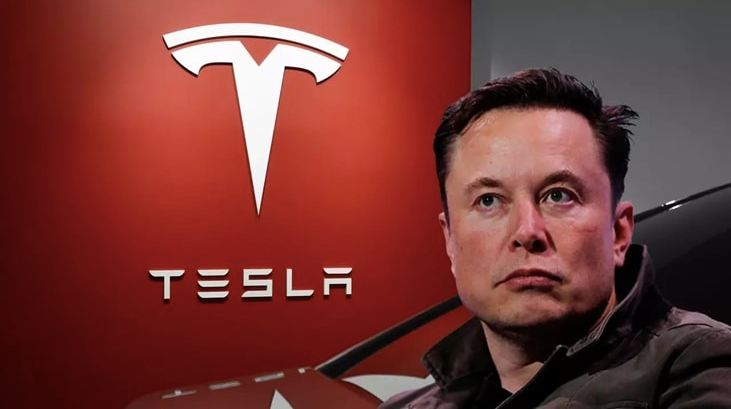Tesla’s sales in China in October reached just over 26,000 vehicles – the lowest level in the past three years. Meanwhile, the US carmaker’s market share in the country fell to just 3.2%, showing growing pressure from domestic rivals and declining consumer confidence.
Tesla sold just 26,006 vehicles in October 2025, down 35.8% year-on-year, its lowest level since 2022, according to the China Passenger Car Association (CPCA).
Compared to September – when Tesla launched the Model YL (a long-wheelbase version with six seats) – this number dropped dramatically, when September sales reached 71,525 vehicles.
Analysts say the weakening purchasing power reflects slowing demand for electric vehicles in China, especially as tax incentives and government support wane.

Tesla is losing market share in the world’s largest electric vehicle market?
Last October, Tesla’s electric vehicle market share in China was only 3.2%, down sharply from 8.7% in September. This is the lowest rate in more than 3 years, showing the company’s worrying decline in the most vibrant electric vehicle market on the planet.
Alongside China, Europe is no longer a bright spot. Tesla reported weak sales in Germany, Spain, the Netherlands and the Nordic region, raising concerns that its growth momentum is slowing globally.
Who is surpassing Tesla in China?
Domestic carmakers are rising strongly. Notably, Xiaomi, with two electric models SU7 sedan and YU7 SUV, reached a record 48,654 units sold in October, despite safety concerns after a number of accidents.
In addition, a series of other Chinese names such as BYD, Li Auto, NIO… are continuously launching competitively priced car models, integrating smart technology, making it difficult for Tesla to maintain its previous brand advantage.
What future for Tesla in this strategic market?
China is Tesla’s second-largest market, behind only the US. However, as overall auto sales in the country have declined due to weak consumer sentiment and reduced support policies, Tesla has been forced to seek repositioning.
The company’s sharp increase in exports of vehicles made in China, reaching 35,491 in October – a two-year high – shows that Tesla is turning to foreign markets to offset declining domestic sales.
News
Blake Shelton Just Surpassed Tim McGraw With This Major Country Radio Milestone
Blake Shelton reached No. 1 with the first song he ever released—”Austin,” off his 2001 self-titled debut album. It certainly…
“Oh! Turns Out Lainey Wilson Also Likes to Catch Up on World News Before Bed!”
Lainey Wilson Reveals a Surprising Tour Habit: “I Look Right Before I Go to Sleep” As the new year has…
There was no miracle… “Kelsea Ballerini’s greatest gift in life is gone.”
Kelsea Ballerini Mourns The Loss Of Her Soul Dog, Dibs: “Greatest Gift Of My Life” Rest in peace, good boy….
Jason Aldean and his wife, Brittany, did not disappoint fans with their first duet performance.
Jason Aldean Teams Up With His Wife, Brittany, For Their First-Ever Duet, “Easier Gone” Ozzie B/imageSPACE/Sipa USA/Alamy Live News Their…
“Megan Moroney on a Major Shift in Country Music — and Why the ‘Good Ol’ Boys’ Should Watch Their Backs”
“Giving The Guys A Run For Their Money”: Megan Moroney on the Massive Shift in Country Music AMBER ASALY Amen…
“The Kindest, Most Patient, And Attentive Partner” – Zach Bryan’s Wife Samantha Shares Emotional Tribute Following New Album Release
Sounds like the honeymoon phase is still going strong. It’s already been a big year for country music superstar Zach Bryan….
End of content
No more pages to load












